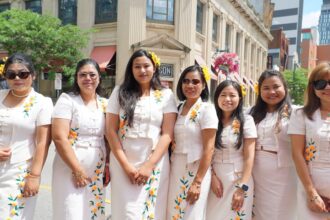The air in Abbotsford will soon be filled with the tantalizing aromas of culinary creativity as the city prepares for Taste of Abby 2025, a celebration that has steadily evolved from a modest gathering into one of British Columbia’s most anticipated food and culture festivals. Set against the backdrop of the Fraser Valley’s agricultural abundance, this event offers a compelling narrative about a community that has found its cultural voice through the universal language of food.
What began as a simple showcase for local restaurants has transformed into a multifaceted experience that captures the essence of Abbotsford’s identity. The 2025 edition promises to elevate this tradition further, with organizers curating a blend of established community favorites and fresh innovations that reflect the changing palette of this diverse city.
“Food festivals have become cultural touchstones for communities across North America,” explains festival coordinator Melissa Chen. “What makes Taste of Abby special is how deeply it’s connected to our agricultural roots while embracing the multicultural influences that have shaped modern Abbotsford.”
The festival’s programming reveals a thoughtful balance between celebration and education. Visitors can expect the return of popular tasting pavilions featuring over 40 local restaurants, breweries, and wineries, but the 2025 edition also introduces expanded culinary workshops where attendees can learn traditional techniques from the region’s diverse cultural communities. These hands-on experiences offer more than just recipes—they provide windows into the immigrant stories that have enriched Abbotsford’s cultural fabric.
Perhaps most intriguing is the festival’s new “Heritage Harvest” section, which explores the indigenous food traditions of the Stó:lō Nation alongside contemporary interpretations by local chefs. This deliberate juxtaposition of past and present creates a dialogue about food sovereignty and cultural preservation that elevates Taste of Abby beyond mere entertainment.
The timing of the festival is particularly significant as communities reevaluate their relationship with food systems in the wake of recent supply chain disruptions. Abbotsford, with its rich agricultural land and farm-to-table ethos, positions itself through this festival as a model for local food resilience. The economic impact is substantial as well—previous editions have generated approximately $3.2 million for local businesses while showcasing the region’s potential as a culinary tourism destination.
Live music performances, cultural exhibitions, and art installations round out the experience, creating what organizer Chen describes as “a multisensory portrait of Abbotsford.” Local artists have been commissioned to create works specifically responding to the theme of “Shared Tables,” exploring how communal dining experiences bridge cultural divides.
For visitors from beyond the Fraser Valley, Taste of Abby offers an authentic glimpse into a city that has successfully balanced agricultural tradition with contemporary diversity. The festival serves as both a celebration and a statement about Abbotsford’s evolving identity.
As communities across Canada search for meaningful ways to express their distinct character while fostering inclusion, Abbotsford’s approach through Taste of Abby 2025 provides a compelling template. By centering the universal experience of sharing food while acknowledging the specific cultural contexts that inform different culinary traditions, the festival creates space for both celebration and reflection.
When the festival opens next year, it will offer more than just delicious bites and entertaining performances—it will provide a taste of what makes Abbotsford uniquely itself, and perhaps more importantly, a glimpse of how communities can use food culture as a bridge rather than a barrier. In a world increasingly defined by division, there’s something profoundly hopeful about a city coming together around shared tables.
For those planning cultural explorations in 2025, Taste of Abby deserves consideration not just as a food festival, but as a living exhibition of how one Canadian community is writing its ongoing cultural story—one delicious bite at a time.
If you’re interested in more cultural events across Canada, check out our CO24 Culture section for the latest coverage of festivals, exhibitions, and community celebrations that define our national identity.























